Drinking in the sun and tickling camels? In some languages, there’s a word for that. Posted by Transparent Language on May 31, 2017 in Archived Posts
Whether you’re a subscriber to the Sapir-Whorf hypothesis or not, it’s undeniable that certain words provide a window into their respective culture.
Language gaps and “untranslatable” words exist for a reason: when you have different values, follow a different schedule, or even live in a different climate, your vocabulary reflects those differences. Want unique insight into a culture and way of life? Learn their language, their slang terms and favorite expressions.
Below are a few of our favorites we’ve come across over the years that uniquely reflect the lives and values of those who speak it.
Utepils (Norwegian)
This word literally means outdoor (ute) lager (pils), which pretty much sums it up. Norwegians might invite each other to enjoy utepils, or drinking a nice cold beer outside on a sunny day. This sounds nice to just about anyone, but after a long Norwegian, it sounds so nice that they have dedicated a word to it.
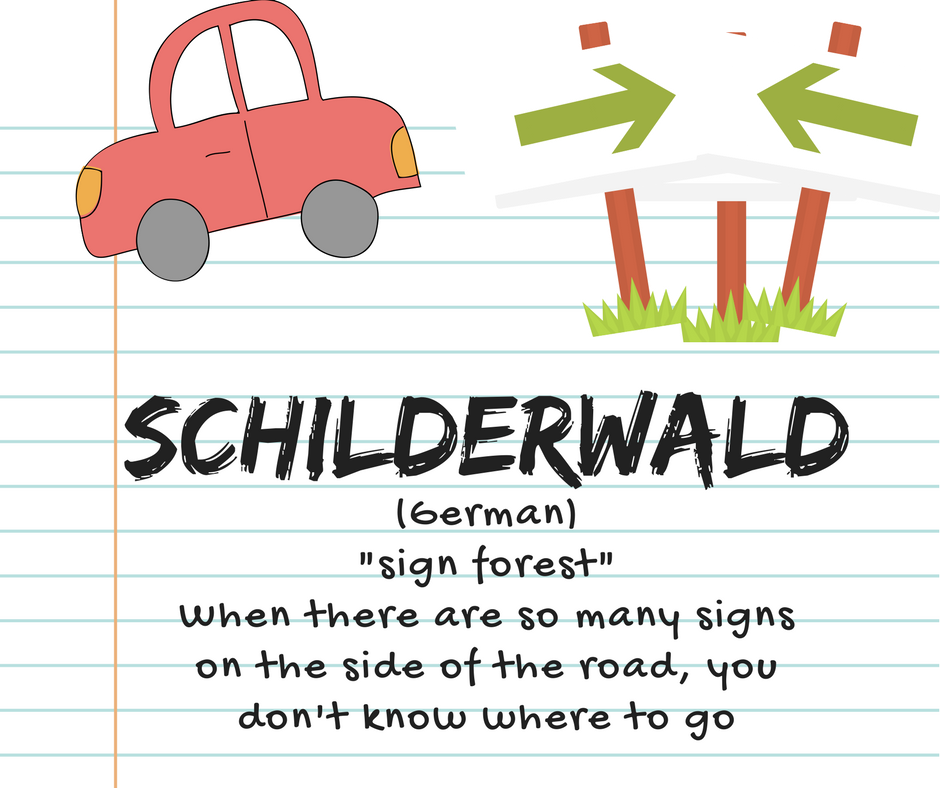
Schilderwald (German)
Literally meaning sign forest, this word describes a place that has so many road signs that you don’t even know where to go. This is where the German need for order and direction backfires, isn’t it?
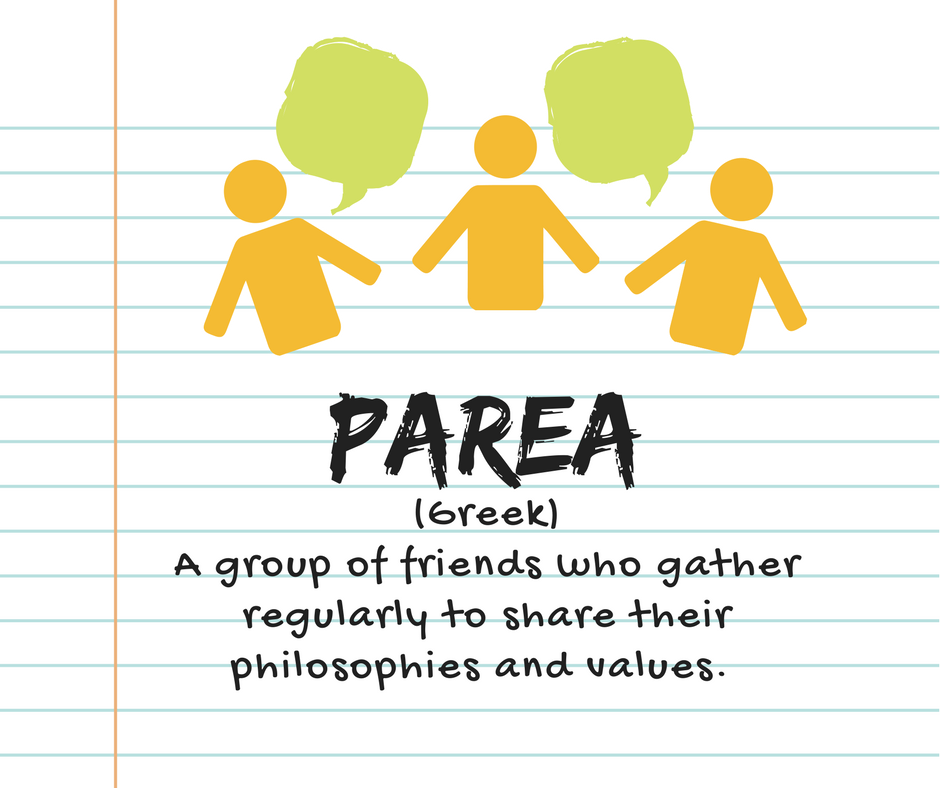
Parea (Greek)
This charming Greek word refers to a group of friends who regularly meet to talk about their lives, discuss their philosophies, and share their values. Centuries of prominent Greek philosophers would be proud of this modernized version of their tradition, we think.
Sobremesa (Spanish)
When you think of Spanish culture, afternoon siestas may come to mind, but we think the tradition of sobremesa is even better. It refers to the time spent chatting and relaxing at the table after lunch or dinner. This word conjures images of the quintessential Spanish desire to take it slow and enjoy the little things.
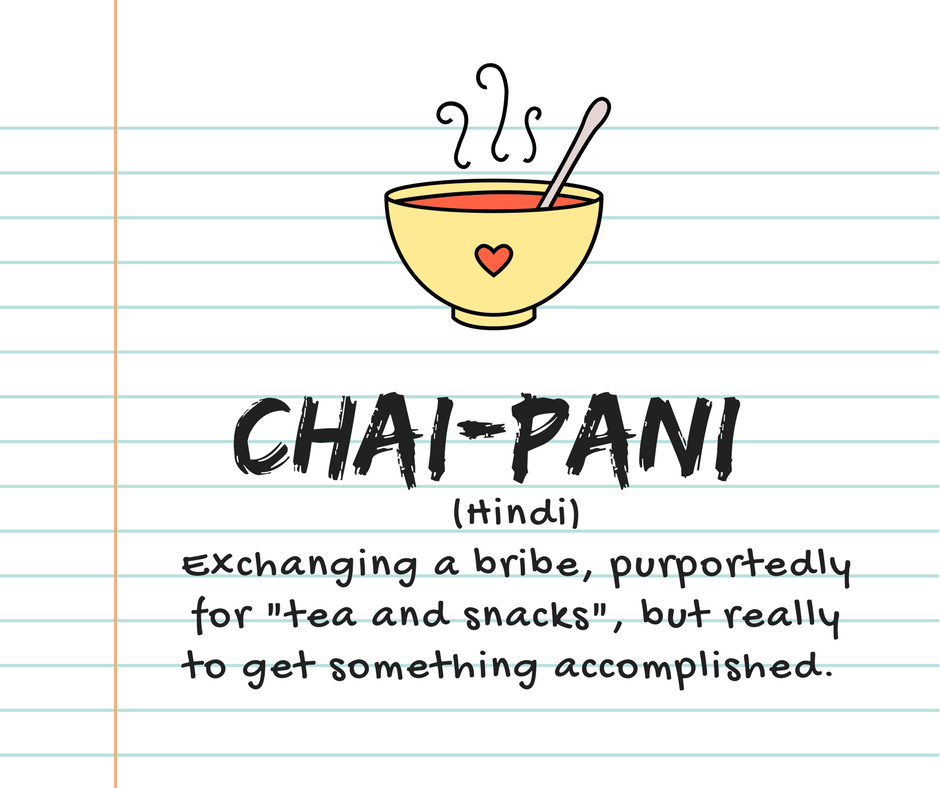
Chai-pani (Hindi)
This term might seem ubiquitous: money given to someone (often a bureaucrat) to get something done. It’s a bribe, right? But what makes it telling of Hindi culture is that “chai-pani” literally means “tea and snacks”. The money is supposedly given for “tea and snacks,” so that the other person is not offended that a bribe is being blatantly offered.
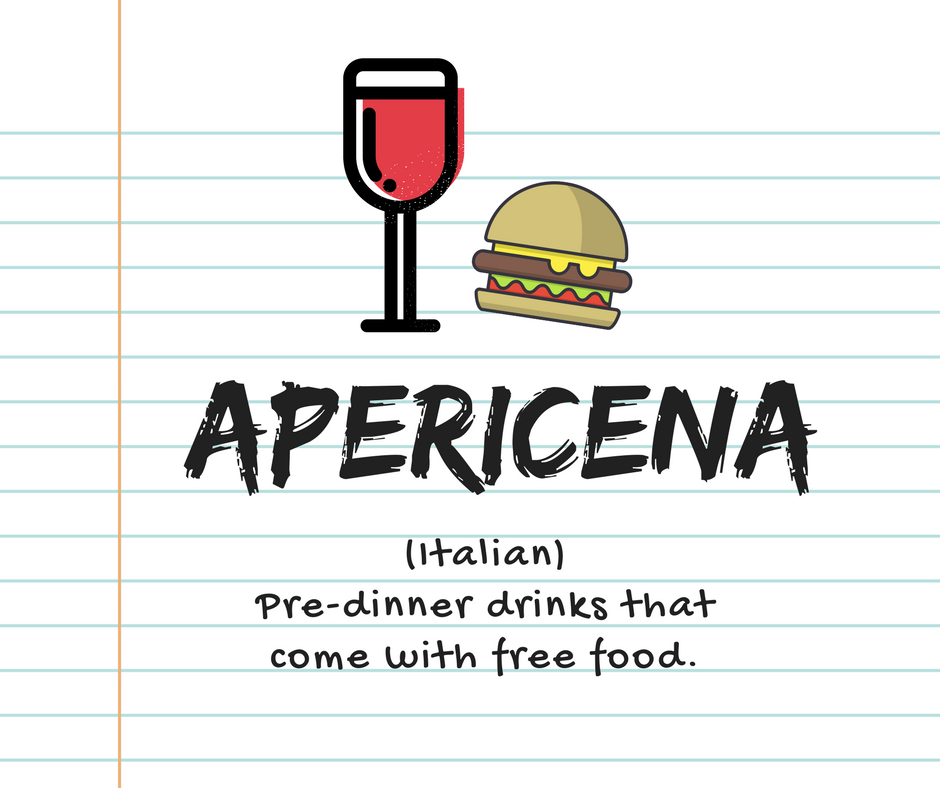
Apericena (Italian)
You may have heard of an “aperitif”, but in Italy, pre-dinner drinks often come with free food. That’s why the Italians created their own word, “apericena”, a play on aperitif and the Italian word “cena,” which means dinner. You’d expect nothing less of a culture that so savors food, right?
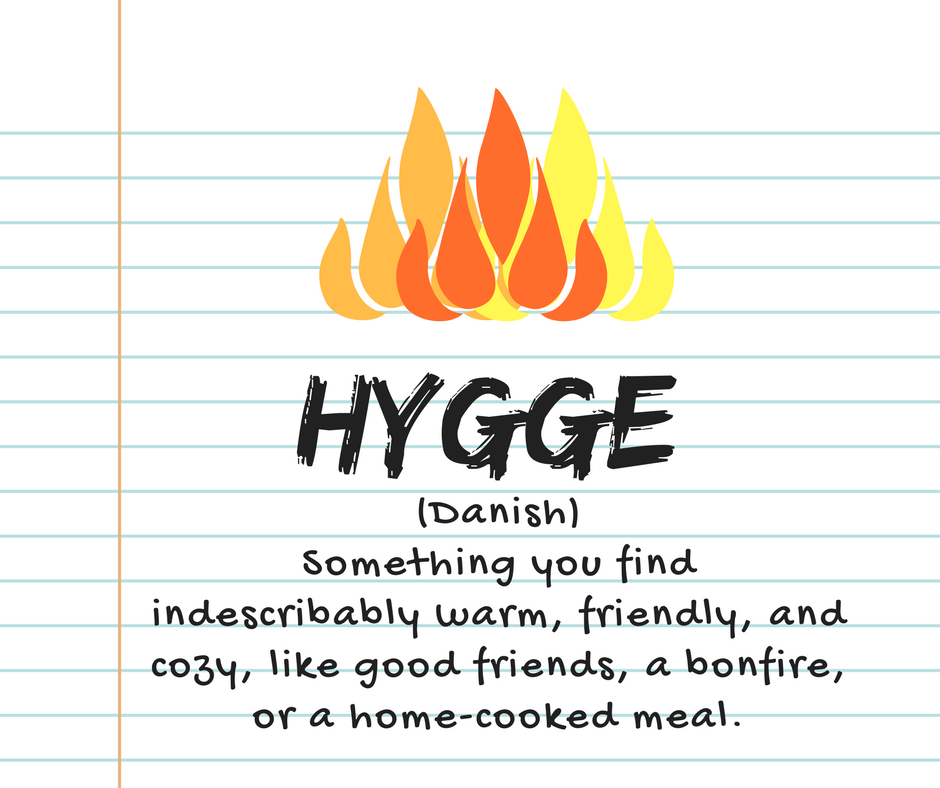
Hygge (Danish)
“Hygge” means something different to everyone, but in essence it describes something that conjures warm, cozy, and friendly feelings. This could be a great day with friends, reading by a warm fire, or enjoying a great meal. The word is now so ubiquitous that it was chosen as the Oxford Dictionary Word of the Year in 2016. While it may not be unique to Denmark anymore, it does lend credence to the claim that the Danes are the happiest people in the world.
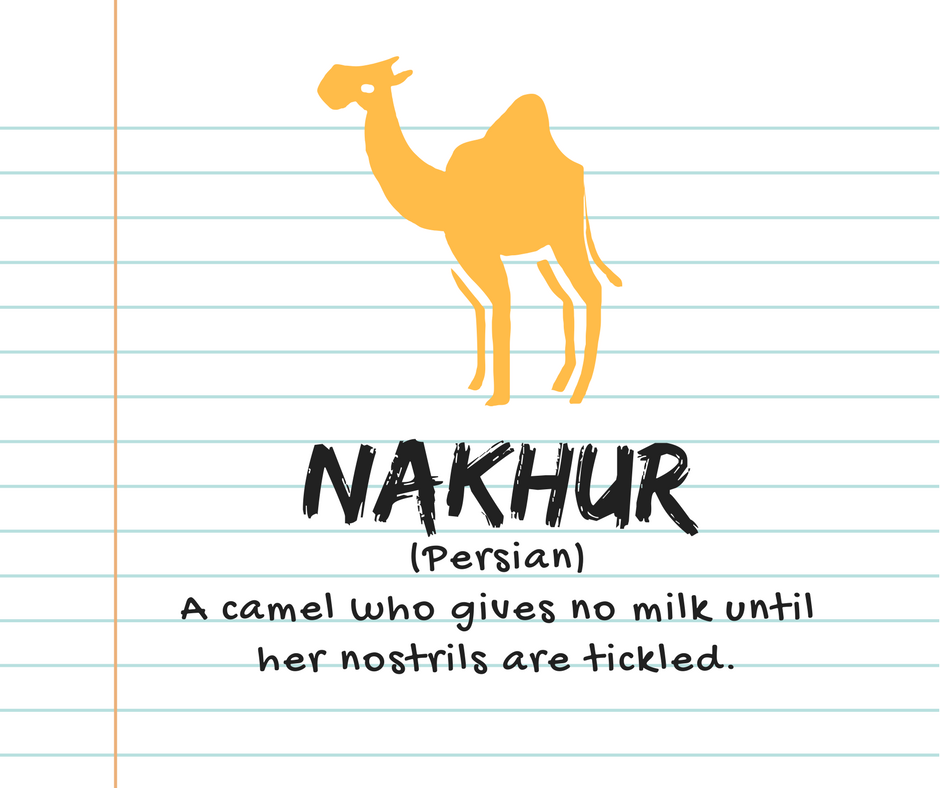
Nakhur (Persian)
This example takes us a little farther from the beaten path, but demonstrates exactly how a language develops to fit the needs of its speakers. This Persian word refers to a difficult camel, something the average English speaker would probably never have to deal with. Camels udders are quite sensitive and some only give milk when prompted by a calf, thus the tickling by their handler.
Help us add to this list! What words do you know that reflect another culture or way of life?
Ready to dive deeper into a new language? Find Transparent Language Online free in a library near you or sign up for a free trial and explore all 100+ languages offered.

Build vocabulary, practice pronunciation, and more with Transparent Language Online. Available anytime, anywhere, on any device.



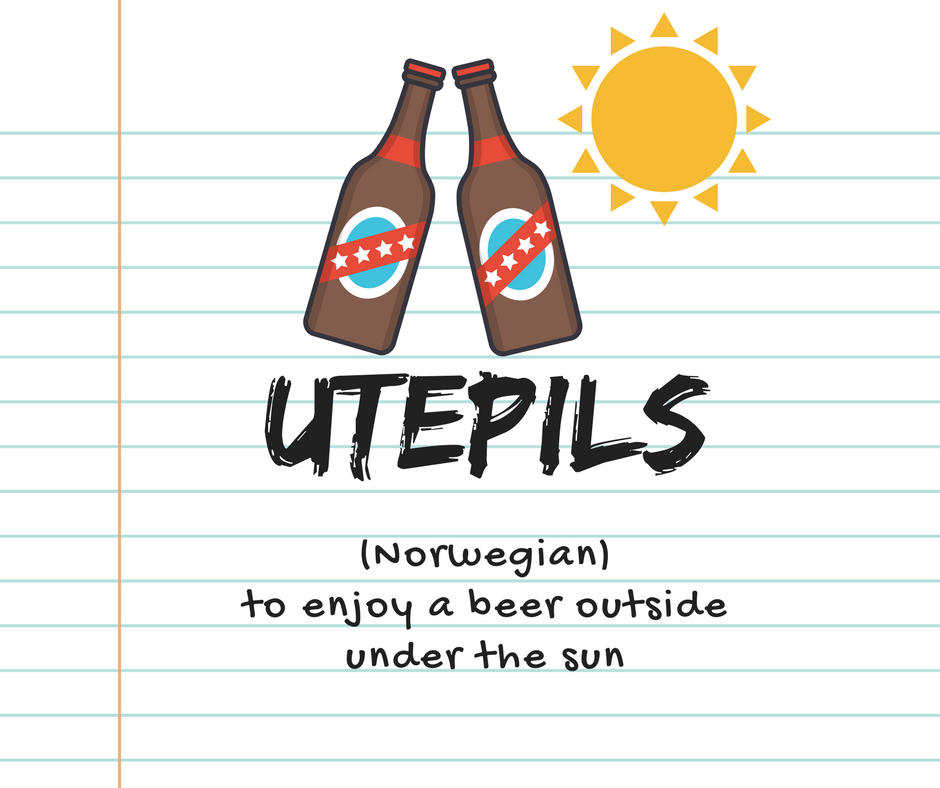
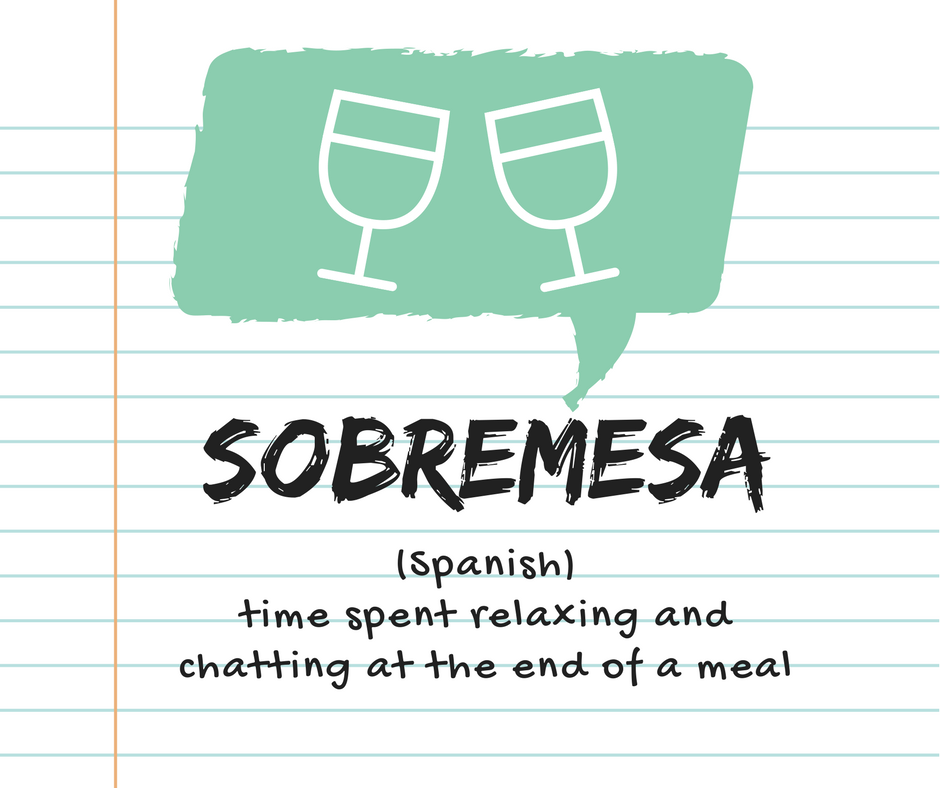

Leave a comment: